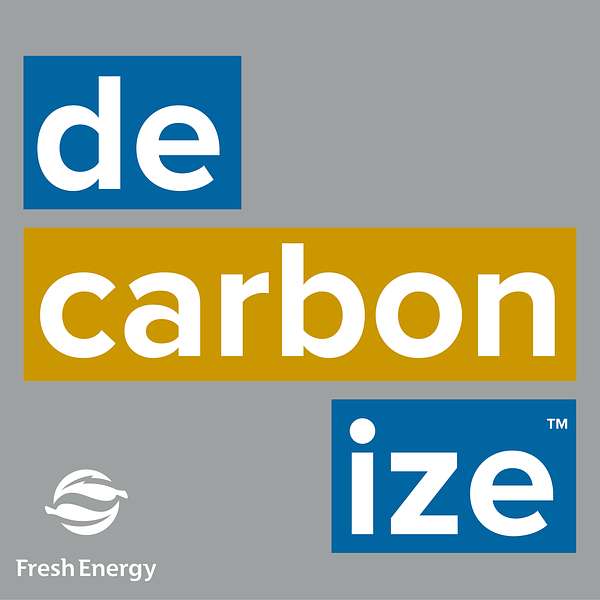
Decarbonize: The Clean Energy Podcast
Decarbonize: The Clean Energy Podcast
Looking ahead to COP28 with J. Drake Hamilton
The 2023 U.N. Climate Conference, also known as COP, will be held in the United Arab Emirates from November 30 through December 12. J. Drake Hamilton, senior director, science policy at Fresh Energy, will be one of the more than 70,000 participants from around the globe to attend. Get the scoop from J. on some of the big discussions that will be happening at the event, a presentation hosted by Fresh Energy, and why this year is anticipated to be the most impactful COP since Paris.
Stay up to date from J. when she's at COP28 at fresh-energy.org/COP28.
Listeners can stay up to date on Fresh Energy's work via our once-monthly email list, blog at www.fresh-energy.org, or by following us on Facebook, LinkedIn, Instagram, and Twitter. You can support Fresh Energy’s work for a clean energy Minnesota by making a donation today!
Thank you to the band Palms Psalm for providing our theme song, "DGAF" off of their album Otuhaka. Get the latest from the band at palmspsalm.com.
Fresh Energy’s mission is to shape and drive bold policy solutions to achieve equitable carbon-neutral economies. Together we are working toward a vision of a just, prosperous, and resilient future powered by a shared commitment to a carbon-neutral economy. Learn about Fresh Energy's work and our bold "Vision 2030: Fresh Energy's Strategic Framework" at our website fresh-energy.org.
Follow us on Social Media!
Instagram: https://www.instagram.com/freshenergytoday/
Bluesky: https://bsky.app/profile/freshenergy.bsky.social
Facebook: https://www.facebook.com/freshenergytoday
LinkedIn: https://www.linkedin.com/company/fresh-energy/